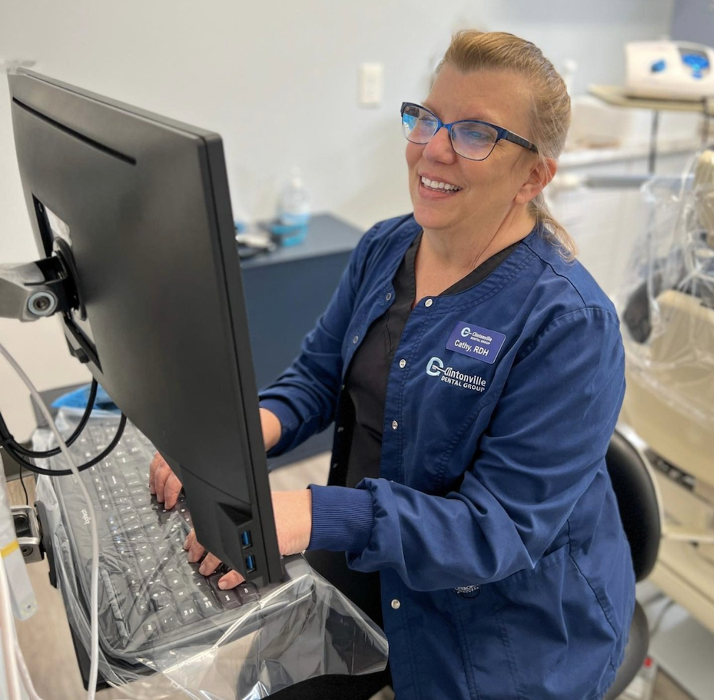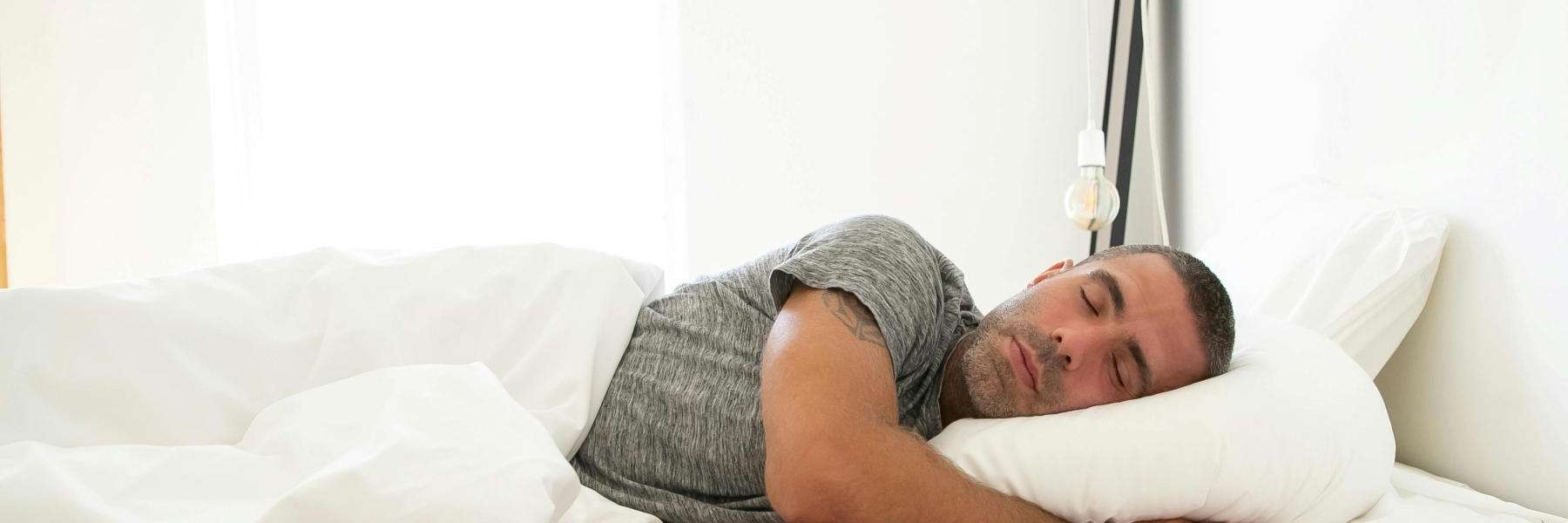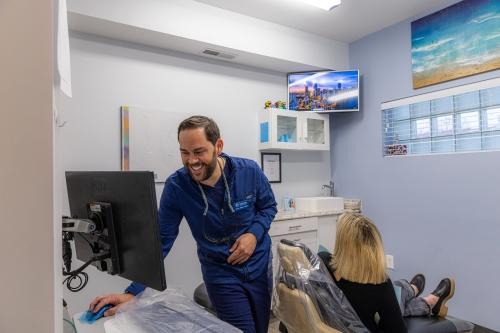Snoring vs. Sleep Apnea: What’s the Difference?
 Not all snoring means sleep apnea, but it’s often a clue. Snoring happens when airflow causes the tissues in your throat to vibrate. Sleep apnea goes a step further by blocking airflow entirely, interrupting your sleep and oxygen levels.
Not all snoring means sleep apnea, but it’s often a clue. Snoring happens when airflow causes the tissues in your throat to vibrate. Sleep apnea goes a step further by blocking airflow entirely, interrupting your sleep and oxygen levels.
If snoring keeps you (and your partner) awake or affects your health, it’s time to explore solutions.
How Can a Dentist Help with Sleep Apnea?
Sleep apnea can affect your memory, concentration, and mood due to reduced oxygen levels during sleep. Treating the condition helps protect your cognitive and heart health while improving relationships and giving you the restful sleep you need.
At Clintonville Dental Group, we provide effective, non-invasive treatment for sleep apnea using oral appliance therapy. These custom-made devices keep your airway open while you sleep. They’re easy to use, portable, and much less bulky than a CPAP machine.
The oral appliance gently repositions your jaw or tongue, preventing airway collapse and allowing smooth, uninterrupted breathing. It’s a simple solution that can greatly affect how you sleep and feel.

 Do you wake up feeling groggy, even after a full night’s sleep? Does your partner nudge you awake to stop snoring? These could be signs of sleep apnea—a condition that disrupts your breathing during sleep and impacts your overall health. At Clintonville Dental Group, we offer sleep apnea treatment in Columbus, OH, designed to help you breathe easier, sleep better, and feel more energized during the day.
Do you wake up feeling groggy, even after a full night’s sleep? Does your partner nudge you awake to stop snoring? These could be signs of sleep apnea—a condition that disrupts your breathing during sleep and impacts your overall health. At Clintonville Dental Group, we offer sleep apnea treatment in Columbus, OH, designed to help you breathe easier, sleep better, and feel more energized during the day.